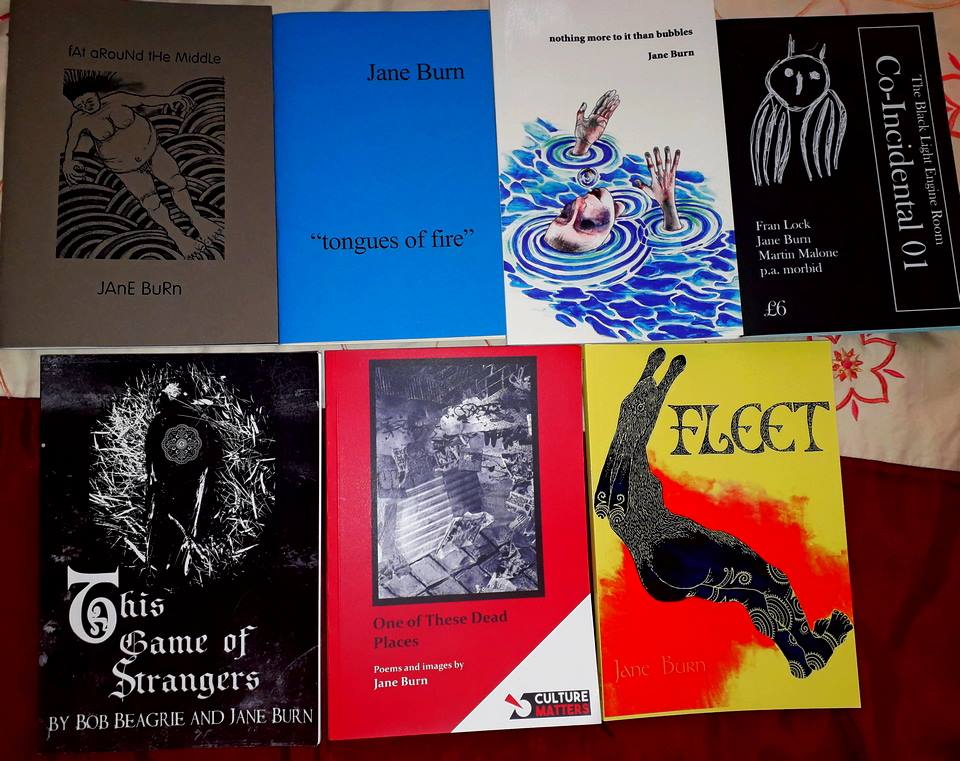
JANE BURN – POETRY AS HARD GRAFT, INSPIRATION, REACTION OR EXPERIMENT?
I interviewed poet & artist Jane Burn who won the Michael Marks Environmental Poet of the Year 2023-24 with A Thousand Miles from the Sea.
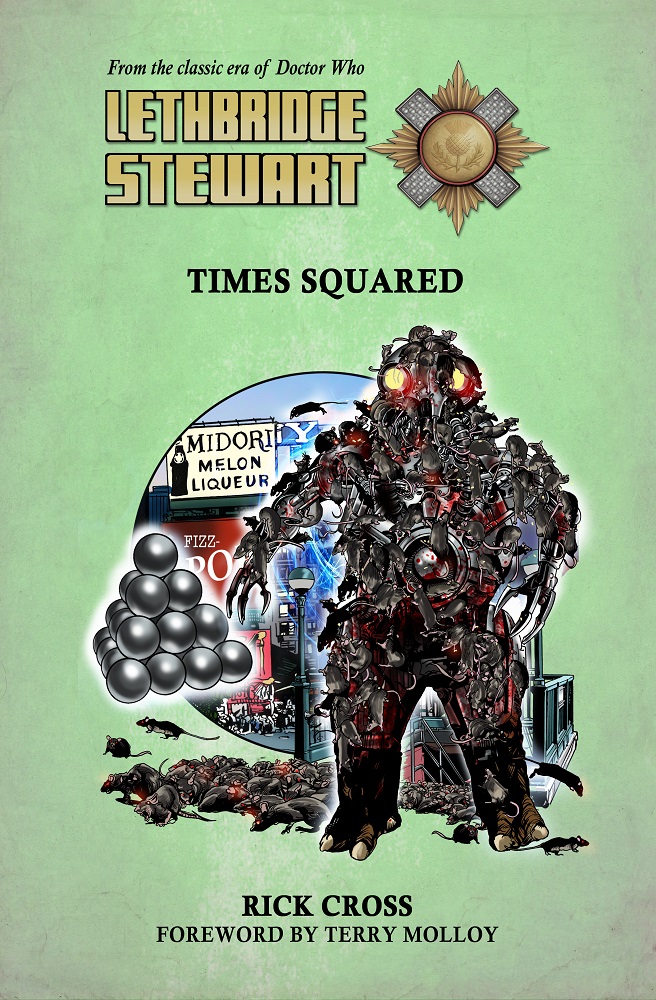
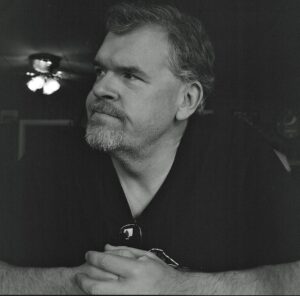
I talked to Rick Cross, senior NASA media writer and winner of the Silver Snoopy award for his interviews with astronauts and his coverage of early spaceflight missions. Rick is also the author of short stories and the novel Times Squared, a licensed Doctor Who spinoff. I wanted to find out how Rick’s unique access to the premier location for space exploration might help and inspire his work as a sci-fi author.
Leslie: Could you explain what you do as senior media writer at NASA’s Marshall Space Flight Centre in Huntsville, Alabama. What’s it like to work there?
Rick: The Marshall Centre is actually NASA’s oldest field center, the place where the space program really got its original start more than a half-century ago, testing the very first Redstone rockets and eventually the Saturn series that powered the moon launches. I was lucky enough to stumble into a contract-writing position there in 1999. I’d been laid off from a company in town where I was writing public relations materials and organizing trade show activities for a computer-aided design software maker, and I was mere months away from marrying my wife Heather, so I was relieved that the only available writing job I could find in town was such a phenomenal one!
Today, I work for a firm hired to conduct communications, exhibits and outreach activities for Marshall. We’re housed right on center among the scientists and engineers responsible for everything from space science and solar studies, to managing scientific experimentation aboard the International Space Station and managing the ambitious new program to build the nation’s next great rocket, the Space Launch System. We closed out the space shuttle program, for which Marshall oversaw all propulsion systems, just a few years ago and today we’re focused on the future: the third great era of space exploration, sending new, crewed expeditions into the solar system and expanding humanity’s reach into the cosmos itself.
Since I started there at the turn of the century, I’ve been lucky enough to write for every single area of focus at Marshall: propulsion, hardware development, Earth and space science, the Chandra X-ray Observatory, the space shuttle, the ISS and the Space Launch System. I wrote speeches for two different NASA Marshall Center directors; worked on two major mission mishap investigations, including the Mars Climate Orbiter and the loss of space shuttle Columbia and her crew; led a diversity outreach campaign across five NASA field centers nationwide for a year; helped organize debut live TV coverage of education events such as the NASA Great Moonbuggy Race — now called the Human Exploration Rover Challenge — and was responsible for launching Marshall’s social media presence, including Facebook, which I single-handedly wrote for, and managed for five years.
Life at Marshall is never, ever dull. Obviously, there is all the red tape and bureaucracy of any government organization, but it’s dramatically offset by the thrilling opportunities afforded to the writing team, web editors and other contractors by the very nature of the work itself. I get to work with and write about some of the sharpest minds our country has to offer, and some of the most fascinating work imaginable. I regularly get to meet astronauts, including past heroes and members of the current astronaut corps; I’ve been awarded the coveted Silver Snoopy award, the highest honor the corps itself bestows, for my early success in social media coverage of human spaceflight missions; and I find it equally thrilling to get down ‘in the trenches’, as they say, interviewing lab technicians and ground-level engineers to help tell the nuts-and-bolts story of their work to the American public and the world. It’s my job to tell that story as clearly and plainly as I can, whether I’m writing official NASA press releases or colorful human-interest feature stories for NASA’s busy internet presence. As of 1 June, 2017, I’ll have celebrated 18 years at NASA Marshall, and I wouldn’t trade it for the world. It’s been the most exciting, stimulating, creatively rewarding writing job of my life so far!
Leslie: How does your job relate/contrast to your role as a sci-fi writer involved in a Doctor Who spin-off? How do you juggle the two?
Rick: Ha, that’s a double-edged sword! On one hand, working at NASA constantly inspires me with new technologies, new concepts, amazing propulsion systems and new notions for living and working in space. What these incredible men and women are doing here keeps my creative wheels turning like mad. But on the other hand…
Years ago, a fellow writer warned me to seek out a day-job that kept ‘my hands busy and my mind free’. He argued that spending eight to ten hours a day writing stimulating, complex, engaging materials for NASA could very well sap me of any leftover creative energies to devote to my own fiction, that after spending a day at the NASA keyboard, the last thing I’d want to do is sit down in front of one at home and carry on writing. Alas, he was quite right to a very large degree. The core business of this job speaks to the very heart of my creative endeavors, and I know other novelists and science fiction writers at NASA who will agree with that — but the act of giving my all to NASA every day (and honestly, I don’t know how to do otherwise; I’m not built to write at half-energy, to tell any story I believe in at half-volume!) certainly has left me creatively zapped at day’s end! So whereas I should probably be completing my third or fourth novel by now, after 18 years working at NASA, I’ve only just finished my first! That said, I’ve several projects in the works, and I’m hoping the discipline involved in meeting this first deadline and completing this first writing job will help me get over that hump more easily in future!
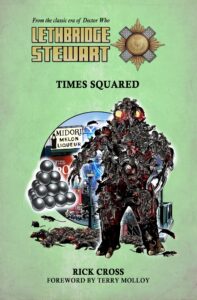 Times Squared, my entry in Candy Jar Books’ Lethbridge-Stewart series (a licensed Doctor Who spinoff), was a thrilling experience. As a media writer for NASA, I’ve always prided myself on delivering professional journalist-style news products, but with a sharply creative flavouring, an imaginative edge that will ‘hook’ readers amongst the public at large. As such, I’ve never surrendered the core creativity that I was able to exercise fully in Times Squared, and I’ve been truly pleased by the reaction of readers, especially long-time Who fans, who largely have praised the very Who-like adventurism and pace of the book. Juggling the two jobs was an interesting challenge, of course. I’d typically work at Marshall from 8:30 a.m. until about 4 p.m. each
Times Squared, my entry in Candy Jar Books’ Lethbridge-Stewart series (a licensed Doctor Who spinoff), was a thrilling experience. As a media writer for NASA, I’ve always prided myself on delivering professional journalist-style news products, but with a sharply creative flavouring, an imaginative edge that will ‘hook’ readers amongst the public at large. As such, I’ve never surrendered the core creativity that I was able to exercise fully in Times Squared, and I’ve been truly pleased by the reaction of readers, especially long-time Who fans, who largely have praised the very Who-like adventurism and pace of the book. Juggling the two jobs was an interesting challenge, of course. I’d typically work at Marshall from 8:30 a.m. until about 4 p.m. each 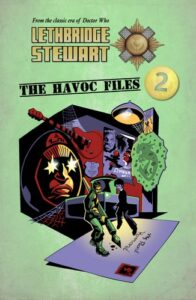 day, then come home, spend the evening with my family — my wife Heather and our son Declan, who is also a Doctor Who fan. Then, depending on my fatigue level, I’d either work until about 3 a.m. before catching four hours’ of sleep, or crash for 4-5 hours before rising in the wee hours to work until it was time to rouse the household and begin our day. Not an ideal working situation, but it sufficed during the writing of Times Squared (and the short story “House of Giants,” which appeared in the Lethbridge-Stewart anthology collection The Havoc Files 2, also from Candy Jar Books).
day, then come home, spend the evening with my family — my wife Heather and our son Declan, who is also a Doctor Who fan. Then, depending on my fatigue level, I’d either work until about 3 a.m. before catching four hours’ of sleep, or crash for 4-5 hours before rising in the wee hours to work until it was time to rouse the household and begin our day. Not an ideal working situation, but it sufficed during the writing of Times Squared (and the short story “House of Giants,” which appeared in the Lethbridge-Stewart anthology collection The Havoc Files 2, also from Candy Jar Books).
People have asked me if I started to feel schizophrenic, switching back and forth from one writer mode to the other nearly every day for six months. I honestly didn’t have that feeling much at all. A good writer can write about anything, and should be able to switch tone and tack as needed, even mid-stream if need be. Writing Times Squared, I did my best to hammer out as much first-draft material as possible each night, setting aside the manuscript when the alarm rang and it was time to go back to NASA. There, I’d take up whatever science product or engineering release I was working on, and give it the best possible spin and polish. Then back home to dive back into the world of Alistair Lethbridge-Stewart, fleeing Yeti and killer rats through the streets of Manhattan. It was so much fun to seemingly send “The Brigadier” off on holiday… and then of course to plunge him right back into a sci-fi nightmare! There’s nothing in the world more delightful than writing about killer robots and plague-ridden vermin and a city laid low by the plotting of a mad, interstellar entity bent on the overthrow of the human race! Normally, I’d imagine writers have to pay a lot of dues on the fiction side before getting to play around in that wheelhouse, so I was honoured and thrilled beyond measure to get to take off my NASA hat every night and pop on my Astrakhan (I’m a William Hartnell fan all the way!) and subject some of Doctor Who‘s greatest heroes to the funky, frightful machinations of this lifelong fan!
Leslie: You identify as a lifelong fan of ‘Doctor Who’ as well as other British and American science fiction, fantasy and horror. Who are your greatest influences and why?
Rick: I’ll offer up some biographical material to explain my early influences. I grew up in a very conservative home, the son of two fairly strict-minded Christian parents. I learned years later that my mother actually enjoyed science fiction and horror movies, to a point, but during my formative years, they were neurotically devoted to keeping my younger sister and me away from what they deemed “inappropriate” movies and TV shows. This continued through my teen years. My dad famously (among my friends) made me write a three-page essay detailing why I should be permitted, at 14, to accompany him to see the R-rated feature The Road Warrior. I ended up handing him a five-page manifesto about the cultural importance of international cinema, predicting (accurately) that the film would do for action pictures what Star Wars had done for sci-fi movies. He acquiesced… but two or three times during the movie I still had to practically pin him to his seat to keep him from walking out! The film ended up becoming an all-time favorite of mine… and the source material for my first completed work of long fiction: a novelization of both Mad Max and The Road Warrior! I sent the manuscript to Kennedy Miller Productions, and received a kind letter in return from producer Byron Kennedy, gently explaining how novelizations worked, but praising my industriousness nonetheless. I treasured that letter ever after — my first rejection! — especially after Kennedy tragically died scouting locations for the third Mad Max film some years later…
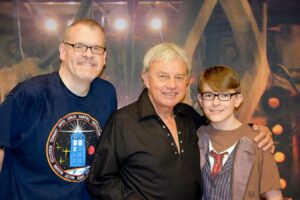
Anyway, as overly cautious as my parents were about TV, they didn’t give a whole lot of thought to policing other avenues of entertainment. Like most Army brats, I treasured my library card. Growing up in the 1970s, bopping around the country as my career-Army father was moved from duty station to duty station, I lived to explore each new Army post library. Marvelous storehouses of riches back then, every one — overflowing with great books for all ages, to a degree I’ve not often seen in public libraries in years since. It was an Army post library where I became a voracious reader at age 7 — possibly in part because I never wanted to be late to return a library book!
It was in one of those refuges of the imagination, a place where I guess my parents assumed I would always stick to kid fare (and never checked too closely), that I first discovered Ray Bradbury, the first great literary influence of my life (and still one of my top three favorite authors). Two of his story anthologies, R is For Rocket and S is For Space, were shelved in the kids’ section. Probably because of those simplistic titles. What lay between the covers, however, was something else entirely. Bradbury not only told the most incredible stories, weaving staggering ideas and compelling themes into the most outlandish tapestries of sci-fi, fantasy and horror, but his command of the language was like nothing I’d ever read before. He was a prose poet, every short story a tutorial in inventive new ways to play with language. He was training me as a writer before I ever knew it was happening.
I read every short story collection I could find, then cast about for more. I found The Martian Chronicles, then Dandelion Wine and Something Wicked This Way Comes — and by then I was a devotee for life. Thanks largely to Bradbury, I was reading at a college level before I turned 10 years old. Most of the fare aimed at kids my age bored me silly — but he offered a welcome bridge from the best of the kid stuff I was “supposed” to be reading (The Wizard of Oz, Peter Pan, The Borrowers, the Narnia books) to a darker, more compelling, relatively grownup world of genre fiction I’d not previously imagined, but have explored ever since.
So Bradbury easily became the first great influence for me. He was followed, amusingly, by a guy whose real name I actually didn’t even know for a time called Alan Dean Foster. Foster was tapped to novelise some of the greatest movies of my youth, including the original Star Wars (ghostwriting as George Lucas), Close Encounters of the Third Kind (writing as Steven Spielberg) and then finally becoming well-enough known himself to have his own name attached to subsequent fare including Alien, The Black Hole and The Thing. Foster also wrote the first true Star Wars spinoff novel Splinter of the Mind’s Eye, which I read to tatters along with all those movie novelisations (many of which I devoured because I was forbidden to see the R-rated films they sprang from!). That was when I began dreaming of a career as a movie novelisation writer, the dream that culminated in my efforts to adapt Mad Max and The Road Warrior. Foster’s powerful, evocative prose was a whole different thing from Bradbury’s. He wrote almost like a journalist, in staccato bursts and blasts of language which I’ve never forgotten. His initial introduction of Darth Vader in Star Wars is legendary: ‘Two metres tall. Bipedal. Flowing black robes trailing from the figure and a face forever masked by a functional if bizarre black metal breath screen…’ There was a time when I was about 14 when I could quote that entire lengthy character introduction. It was mantra to me; it was sacrosanct. Bradbury wrote gentle, powerful prose-poetry, language flora plucked from a garden of the mind… but Foster wrote with brute force, muscle and power, like firing words from a gun. An odd pairing, to be sure, as literary heroes!
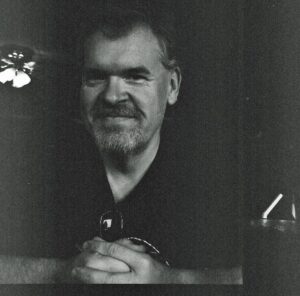
I discovered Doctor Who about this same time — when I was 13-14 years old — thanks to American Public Broadcasting System stations wherever we lived. I was obsessed with Tom Baker’s Doctor, and watched a half-hour episode every day after school. Pity they seemed to care little about the order of the stories, always running each four-parter or six-parter all the way through but then jumping from season to season, so we’d get a Four-and-Sarah-Jane adventure followed by a Leela story, then Sarah Jane again, then Romana II! But I also happened upon some of the Target novelisations at that time too, and they were likewise almost randomly ordered, so I just thought that was how Doctor Who worked. But I loved it. What a hero. No guns for the Doctor — just wit and wisdom and a wise mouth. I liked that!
And then I discovered Stephen King — and I was off to the races and never looked back. It’s taken me all these years to successfully publish, but I thought about being a writer very early on. And at 15 or so when I read my first Stephen King novel — Carrie, as a matter of fact, which was his first published work — that was it. Published or not, I wanted to do what he did: the equivalent of sitting around campfires telling others stories to leave them enthralled, spellbound. I’ve written compulsively ever since.
Next week, in PART TWO of this interview, Rick Cross talks about his creative methods, his struggles with personal illness and the humane face of science.
ABOUT LESLIE TATE’S BOOKS:

I interviewed poet & artist Jane Burn who won the Michael Marks Environmental Poet of the Year 2023-24 with A Thousand Miles from the Sea.
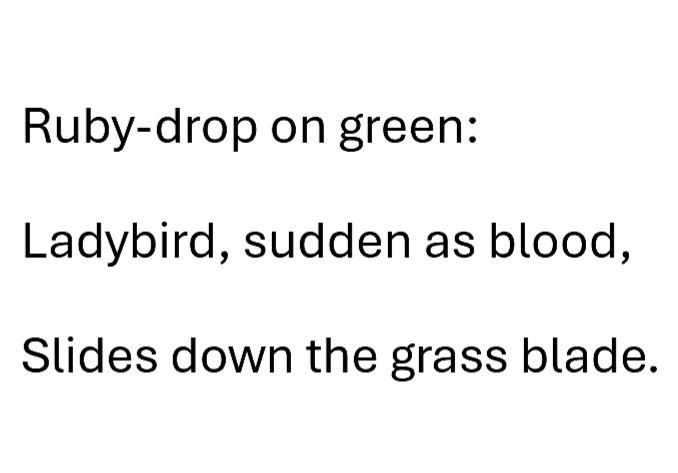
I interviewed ex-broadcaster and poet Polly Oliver about oral and visual poetry, her compositional methods, and learning the Welsh language. Polly says, “I absolutely love
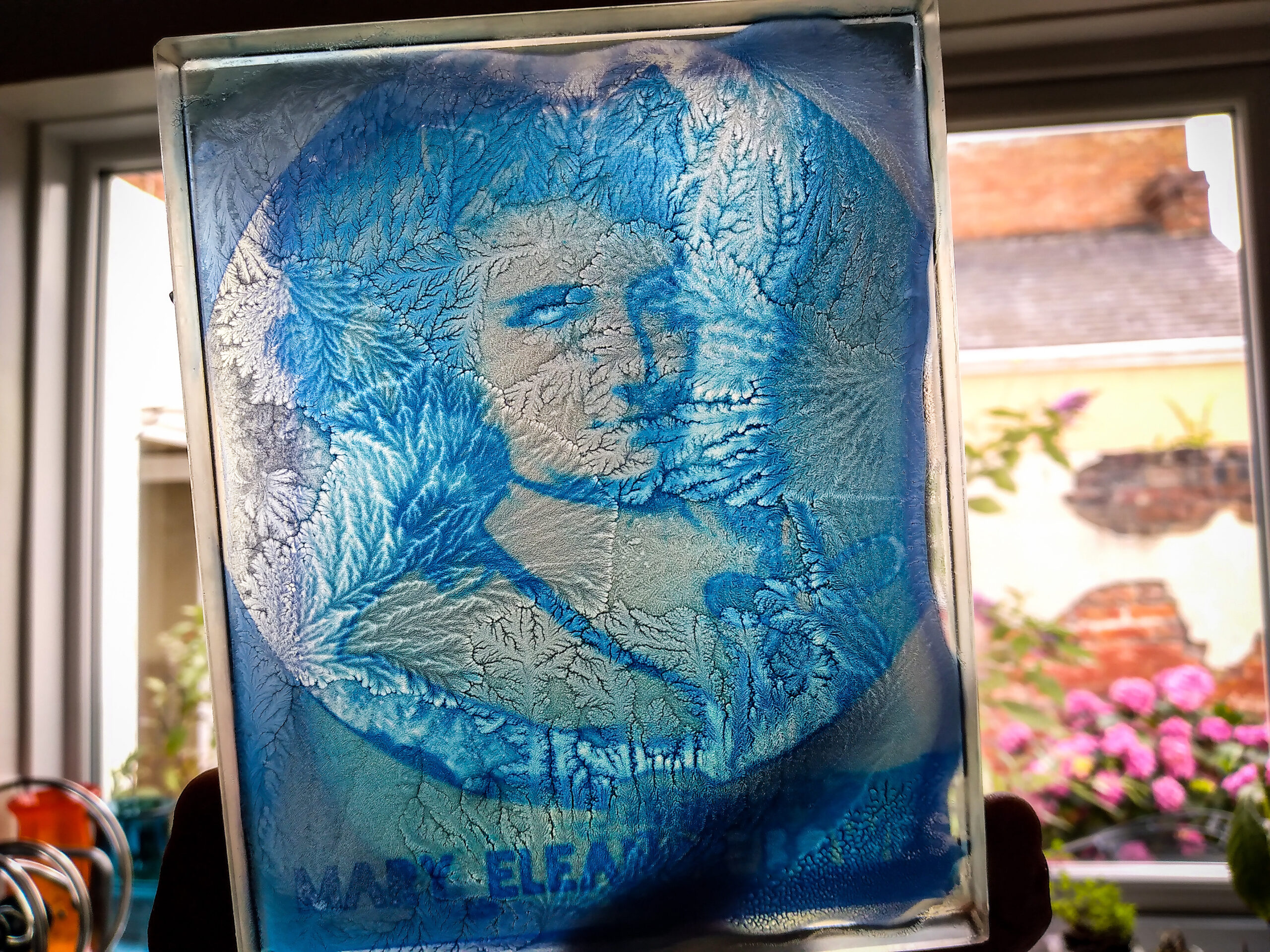
I interviewed Jo Howell who says about herself: “I’ve been a professional photographic artist since I left Uni in 2009. I am a cyanotype specialist.
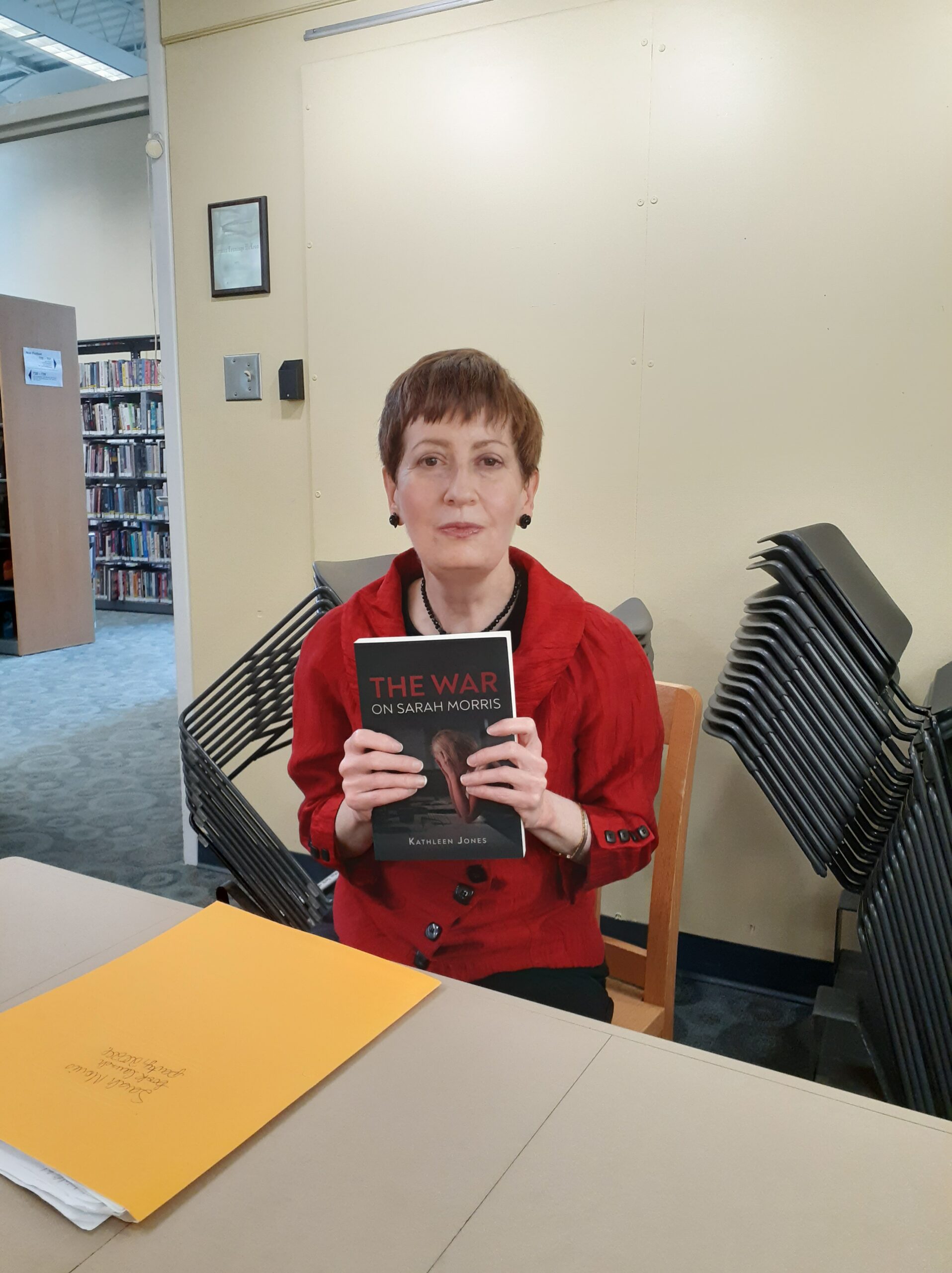

Poet Tracey Rhys, writer of Teaching a Bird to Sing and winner of the Poetry Archive’s video competition reviews Ways To Be Equally Human. Tracey,
| Cookie | Duration | Description |
|---|---|---|
| cookielawinfo-checkbox-analytics | 11 months | This cookie is set by GDPR Cookie Consent plugin. The cookie is used to store the user consent for the cookies in the category "Analytics". |
| cookielawinfo-checkbox-functional | 11 months | The cookie is set by GDPR cookie consent to record the user consent for the cookies in the category "Functional". |
| cookielawinfo-checkbox-necessary | 11 months | This cookie is set by GDPR Cookie Consent plugin. The cookies is used to store the user consent for the cookies in the category "Necessary". |
| cookielawinfo-checkbox-others | 11 months | This cookie is set by GDPR Cookie Consent plugin. The cookie is used to store the user consent for the cookies in the category "Other. |
| cookielawinfo-checkbox-performance | 11 months | This cookie is set by GDPR Cookie Consent plugin. The cookie is used to store the user consent for the cookies in the category "Performance". |
| viewed_cookie_policy | 11 months | The cookie is set by the GDPR Cookie Consent plugin and is used to store whether or not user has consented to the use of cookies. It does not store any personal data. |
6 responses
What a fascinating job Rick has. I think that it is fine to immerse yourself in your day job in these circumstances. Rick will have lots of time to write full time when he retires one day and he will have all this wonderful knowledge and experiences to draw on for his fiction.
Cheers, Robbie — that’s definitely the plan! Though actual retirement may well be beyond my means for some time; as glamorous as a NASA writing life can seem, it’s still just an ordinary day job — NASA’s budget is famously stretched thin as tissue paper as it tries to juggle all the costs of its myriad space, science and aviation missions, and they don’t exactly shower us with riches! That said, it’s enriching in so many ways that have nothing to do with money that I wouldn’t change it for the world. I don’t know many of my fellow college journalism-school graduates still doing anything resembling the work we all trained for anymore; I recognize how truly lucky I am to be employed not only (peripherally) in the career field I studied for, but in such a unique and wondrously engaging job. NASA is a one-of-a-kind gig! (Must just be sure to keep copious notes and copies of tech manuals and the like; all those potential novels remain, simmering away at the back of my mind!) Thanks for reading! 😉
Sounds like a great plan, Rick. I am very pleased to know about your book.
Couldn’t be more delighted to see our chat published, Leslie! Thanks so much for the opportunity to talk at length about writing; I can’t wait to dive into your own work (and I trust I’ll draw as much delight from them as I’ve done Sue’s). All best to the Tate-Hampton family!
Thanks Rick. Sue and I call you ‘The Bionic Man’. Here’s a link to my most recent book on Amazon USA https://www.amazon.com/Heavens-Rage-Leslie-Tate/dp/1911070487/ref=sr_1_1?s=books&ie=UTF8&qid=1496647358&sr=1-1&keywords=heaven%27s+rage+leslie+tate 🙂 🙂 🙂
Wonderful — adding HEAVEN’S RAGE to my short list to pick up posthaste!